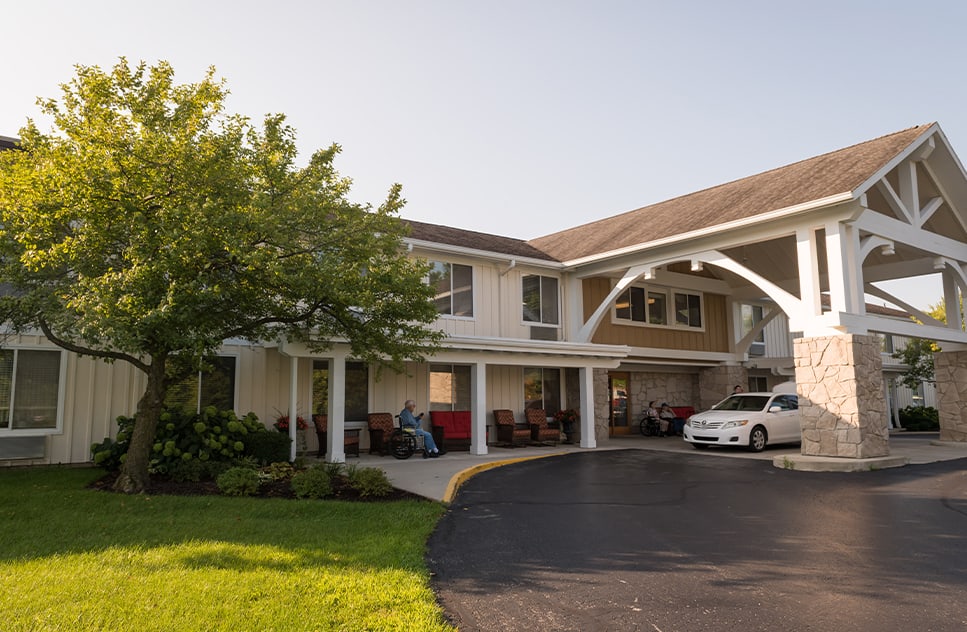The journey back to health can be long and laden with hurdles, affecting mobility and independence. But did you know that the impact of a hip fracture could reach beyond the physical?
Recent studies have uncovered a potential connection between hip fractures and cognitive degradation. These findings suggest that seniors who endure a hip fracture have an increased risk of developing conditions such as dementia or experiencing diminished cognitive functionalities.
This brings to the fore the criticality of preventive steps and all-inclusive care for seniors. Addressing both physical and mental health can notably enhance their quality of life.
Hip Fractures in Seniors
Hip fractures are common in seniors, often resulting from conditions such as osteoporosis and diminished bone density as a consequence of aging. Most fractures result from falls, and can significantly impact one’s ability to move freely and maintain their independence.
Importance of Mobility in Cognitive Health
The contribution of mobility to cognitive health is a significant one. Engaging in physical activities fosters blood circulation to the brain, enhancing neural vitality and mental acuity.
However, incidents such as a hip fracture may inhibit mobility over the long term, thereby causing a drop in a senior’s level of physical activity.
Energizing the Brain with Motion
Regular movement is a critical determinant of brain stimulation. Incorporating simple activities like strolls, stretching and light workouts into daily routines can help strengthen the body and boost cognitive function.
Conversely, when a hip fracture impedes mobility, this could potentially lead to a reduction in physical activity, raising a person’s risk of developing cognitive decline.
Understanding the Impact of Social Isolation
Often, impaired mobility paves the way for social isolation, which is detrimental to cognitive health. Interpersonal interactions play a pivotal role in maintaining cognitive vitality, as they keep the mind stimulated and vibrant.
If limited mobility results in isolation, this might reduce a senior’s cognitive wellbeing.
How a Hip Fracture Can Contribute to Cognitive Decline
A broken hip can trigger a series of events that influence mental capabilities. The relationship between hip injuries and mental deterioration can be complicated, however.
As time passes, limited movement often results in physical weakening, subsequently impacting mental well-being. The reduction in activity can increase the likelihood of cognitive health diminishing over time.

Preventing Cognitive Decline Following a Hip Fracture
Confronting cognitive decline following a hip fracture can seem daunting, but effective management strategies do exist. By implementing early preventative measures and utilizing a well-rounded recovery approach, the adverse effects can be substantially lessened.
Preventative Measures
The significance of early intervention in preventing cognitive decline cannot be overstated. Rapid medical assistance, an all-encompassing rehabilitation strategy, and sustained support for both physical and mental health are instrumental.
Well-Rounded Recovery Approach
A well-rounded recovery approach addresses a person’s physical and cognitive well-being. This includes a regimen of physical therapy, mental health counseling, and routine healthcare check-ups to ensure ongoing progress.
Physical & Cognitive Activities
The integration of physical and cognitive activities into a senior’s recovery routine can help them regain their physical strength while helping maintain their cognitive abilities. Pursuits like walking, stretching, or engaging in cognitive games can aid substantially in maintaining overall health..
The Significance of Skilled Nursing Care in Recovery
Proficient nursing care plays a crucial part in the healing journey, especially for seniors recovering from a hip fracture and dealing with the possible threat of cognitive decline.
Expert nursing communities provide target care for those undergoing significant recovery. This includes both physical rehabilitation and maintenance of cognitive well-being.
These communities create a nurturing atmosphere where patients have access to constant medical care and can expect a prompt response to any health concerns that arise during recovery.
Besides physical therapy, proficient nursing care usually includes therapeutic activities aimed at stimulating the mind, like memory workouts and social events, that assist in maintaining and even enhancing cognitive abilities.
By merging thorough medical care with mental health support, skilled nursing communities are instrumental in helping seniors regain their self-sufficiency.
Skilled Nursing at Kingston Care Center of Fort Wayne
A hip fracture is more than a physical injury; it also has substantial implications for cognitive health. Early intervention, thorough rehabilitation, and continuous support can diminish the likelihood of cognitive deterioration and help seniors maintain a high standard of living post-hip fracture.
At Kingston Care Center of Fort Wayne, we offer specialized skilled nursing services to assist you throughout your recovery process. Our team of specialists delivers empathetic care custom-made to your specific requirements, ensuring your physical and mental health are equally prioritized.
For more information or personalized guidance, feel free to reach out to us. We stand ready to steer you through your recovery journey.






